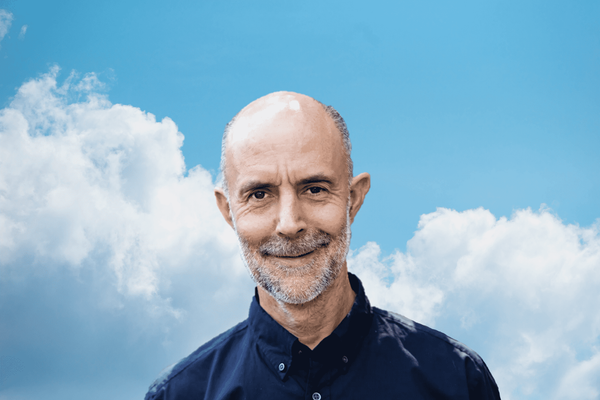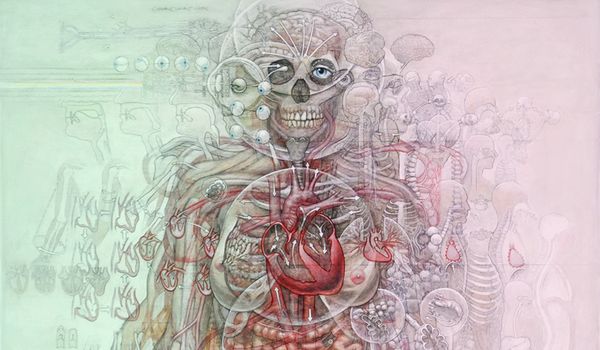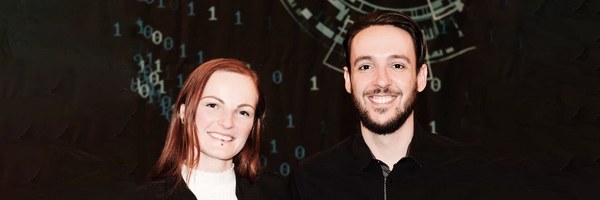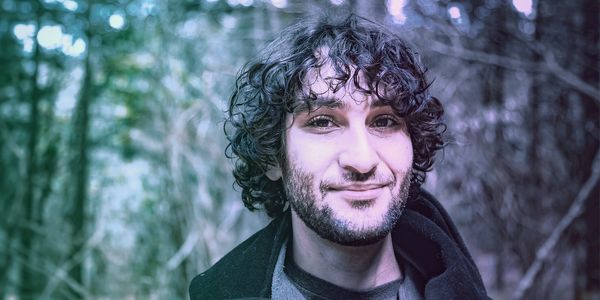Jordan Bates • • 7 min read
Kill Anxiety & Radically Improve Your Life With Conscious Breathing

We all must breathe in order to live, but not many of us know how to really breathe.
It’s a bit of a conundrum. Breathing is an automatic bodily process, so most people naturally believe it should be left alone to take care of itself.
It seems counterintuitive and even ludicrous to think that something as simple as breathing could, in fact, dramatically change your day-to-day experience.
But, honestly, it can.
Overcoming Anxiety and Negative Thoughts
I’m someone who occasionally suffers from bouts of anxiety, irrational guilt, and other forms of self-defeating thoughts. I think of these thought processes as psychological trapdoors — they so often spring from nowhere and lead to dark spaces.
If there’s one thing I’ve realized from living inside my mind, it’s that these psychological trapdoors lead to nothing but crippling insecurity and needless suffering.
See, for a long time, I unconsciously believed what many people believe: that worrying a lot about something can actually help the situation. It seems crazy, but most of us engage in this type of activity. We try to think of everything that could go wrong, or we try to analyze and rationalize past actions or things we perceive to be negative in our lives to justify who we are to ourselves.
It’s possible to spend the majority of your life — years upon years — thinking this way. Doing so, though, is placing yourself in a very literal form of hell on Earth. Over-analyzing and self-criticizing are two enormous burdens. It’s hard to notice how much they weigh you down until you’re able to overcome them, or at least get a handle on them.
The Conscious Breathing Method
What has worked wonders for me in overcoming anxiety and other negative thoughts is learning to be aware of my mind. I actively notice when the first signs of these trains of thought begin to creep in. We all have trigger thoughts — a first thought that leads to a lot of worrying or analyzing — that send our minds on a well-worn route to no-man’s land. I’ve learned mine and recognize them. Try to do the same.
One thing to realize is that these poisonous trains of thought are just begging to be indulged. Unconsciously, we assume that it won’t hurt to analyze the upcoming speech or wonder about the lost love for a little while. However, devoting just a little thought to something gives it much more psychic energy. The more you focus on something, the more it takes root in the mind. Pretty soon, a sapling becomes a Sequoia and you’ve lost your ability to perceive the situation clearly.
So, what I’ve been able to learn to do is to notice as soon as a self-defeating thought-seed enters my mind, and squash it out before it’s able to take hold. Sometimes, I do this by diverting my thoughts to something else, but more often, I simply focus on my breathing.
So, the process looks something like this:
1) Negative trigger idea enters mind.
2) I choose not to devote further thought to it.
3) I choose instead to focus on my breathing.
After focusing on my breathing for, say, 20-30 seconds, the thoughts tend to recede and I can move on with my day, feeling fine.
How to Breathe Consciously
Breathing consciously is surprisingly easy to learn, but it takes practice to be able to do it well. In essence, it means concentrating on nothing but the breath entering and exiting your body.
The mind will fight against this. It wants to think of the thousands of other things we think about every day, so you’ll notice other thoughts creeping in. Just acknowledge them then let them go — let them fade, dissipate — and return to your breathing.
Here are a few tips:
1) Breathe through your nose – This is what the Buddha taught and is the standard in many schools of meditation.
2) Focus on the outer edges of your nostrils – Also a standard suggestion. Focus on the air moving through the nostrils and filling the body. Focus on it rushing out.
3) Breathe deeply and slowly – When breathing is automatic, our breath is shallow. When breathing deeply and slowly, the effect is more relaxing. This also gives you more to focus on.
4) Breathe from the diaphragm, not the upper chest – Your diaphragm is a muscle located between your chest cavity and stomach cavity. When breathing from the diaphragm, the stomach expands and contracts. This is typically recommended in deep breathing exercises.
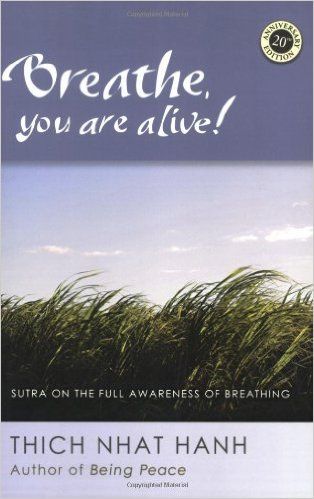
5) Imagine something complimentary – I usually imagine positive energy flowing into me when I breathe in, and negative energy leaving when I breathe out. I also sometimes picture an ocean rising when I inhale and falling when I exhale. This is calming for me and may work for you too.
6) Close your eyes and be still – This helps me block everything else out more easily.
For more on conscious breathing, check out the Zen Buddhist, peace activist, and renowned author Thich Nhat Hanh’s Breath, You Are Alive: The Sutra on the Full Awareness of Being.
A Word on Mindfulness
Another stellar benefit of conscious breathing is that it allows you to be more mindful. Mindfulness is essentially a type of meditation that can be done at any time in everyday life. It entails being wholly and completely present in the here and now, the present moment, while adopting a perspective of non-attachment.
A Facebook friend of mine posted this poignant quote on mindfulness a couple of weeks ago. I don’t know who wrote it, but I think it’s an apt description:
“As to what mindfulness is like, as is often said, there can be no direct description of it, but it can be analogized.
Do you remember what it was like when you first traveled to a foreign country? Say it was Rome. Every experience on that trip felt like Rome itself. The airport itself was Rome saying welcome. Every interaction, from the cafe waiter, to the hotel desk clerk, to the museum guides, they were all expressions of Rome. The smell of traffic exhaust was uniquely Roman, as was the trash on the ground, the humidity after the rainstorm. All of these things were as Roman as the Coliseum. Rome was not a place, not a city, but a living experience. This is what happens when you see the world without the veil of identity and thoughts, and you are just a wanderer with no role to play.
When you go back home, the airport is just a bore. Traffic exhaust just smells like exhaust. Trash is an eyesore. Humidity is just unpleasant. The cab driver is rude. Even the landmarks are unremarkable. This is what happens when you see the world through your identity, the role you are obliged to play.”
Put simply, mindfulness means forgetting yourself in the experience of the present moment. One way to be in the present is to focus on your breathing. Another is to focus on your bodily sensations, the various background noises happening all the time, the smell of the air, the caress of the wind, the shape of the clouds.
In either case, try to let your thought-traffic slow and bring your awareness to the details around you. Your thoughts won’t stop entirely — that’s not the point. Just try to allow your thoughts to become as birdsong in the background or the sound of running water — just another aspect of your environment, not of particular importance.
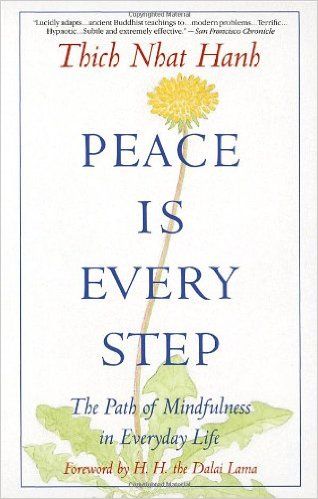
Like conscious breathing, mindfulness take practice, but I can’t express the value it has brought to my life. Many times every day, I remind myself to snap out of my reverie of thought and just be here. It’s wonderful.
And that’s not to say that I think one should try to be mindful all the time or that there isn’t tremendous value in daydreaming, being lost in thought, ruminating, etc. I do those things all the time and see them as greatly valuable and a natural part of my life. I simply think of mindfulness and conscious breathing as tools to really slow down, taste, and reconnect with the world around me when it seems I’ve lost touch with it.
For more on mindfulness, check out Thich Nhat Hanh’s Peace is Every Step: The Path of Mindfulness in Everyday Life. Regular sitting meditation also makes it much easier to breathe consciously and be mindful, so you may want to read our ultimate guide to meditation.
Let Your Breath be Your Anchor
It’s comforting and empowering to know that your breath is always there for you. Like a mother to her child, it will not forsake you. For me, my breathing has truly become a haven, an oasis to which I can always retreat when thought-demons infiltrate my mental castle.
I hope it can become the same for you. I encourage you to adopt it as a habit. Start very small, and practice at it little by little. Best wishes to you all, and I’ll leave you with a few sage words from a fellow writer and blogger, Leo Babauta, who once taught me about breathing:
“Breathe.
If you feel overwhelmed, breathe. It will calm you and release the tensions.
If you are worried about something coming up, or caught up in something that already happened, breathe. It will bring you back to the present.
If you are moving too fast, breathe. It will remind you to slow down, and enjoy life more.
Breathe, and enjoy each moment of this life. They’re too fleeting and few to waste.”
Being Peace
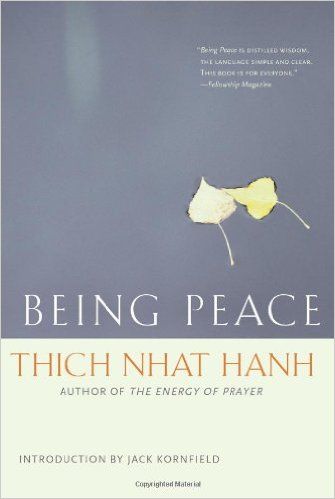
Lastly, let me just suggest that for a wonderful, wonderful introduction to mindfulness, conscious breathing, and Buddhist philosophy, I highly recommend Being Peace, yet another book by Thich Nhat Hanh. I wouldn’t recommend Hanh’s writing so incessantly if I didn’t sincerely feel that this man is in touch with a lighter and more liberated state of being and has an immense amount of wisdom to bestow upon each of us, if we are but willing to listen.

Jordan Bates
Jordan Bates is a lover of God, father, leadership coach, heart healer, writer, artist, and long-time co-creator of HighExistence. — www.jordanbates.life

